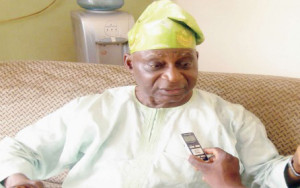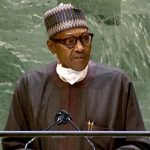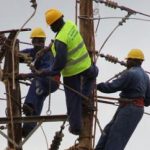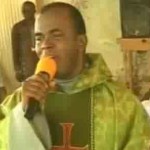Who is Afraid of the National Conference?
National Conference 2014, Tunde Ali Sunday, October 27th, 2013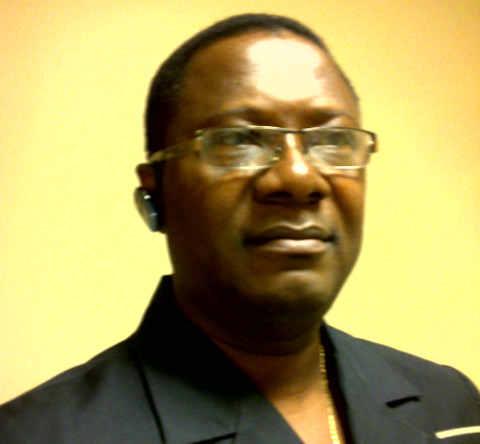
By Dr. Tunde Ali
Regardless of the political insinuations from all quarters about the need or call for National Conference, the reality of the season dictates that Nigerians must come together to discuss and re-determine the status of Nigerian nation amidst its shaky unity and polarized diversity. The meeting does not necessarily have to be in a round-table setting, it does not matter if it is square, triangular or rectangular table; not even if it is through referendum or plebiscite; what matter is that Nigerians must meet and discuss the way forward.
It is obvious that the present day Nigeria has disintegrated to the shadow of the founding fathers dream. The diversity which was considered strength appears to be the bane of our continued unity. Our old and native land with diverse tribes and tongues has been greatly decimated by those to whom we have loved and entrusted with the leadership of our nation. Rather than leading us aright they led us amiss. By their actions of corruption and ineptitude, the goals and intentions of our founding fathers and nationalists had been thwarted. Consequently, Nigeria of today is characterized by mutual distrust and suspicion of one tribe by the other.
In the 53 years of Nigeria’s post-independence, trust that has been the crux of the nation’s unity is being abused and betrayed with impunity by all political actors and players especially at the Federal government level. Rather than promoting nationalism and patriotism, they are more sectional and regionally focused. This did not only weaken the federal government’s policy to promote and sustain unity in diversity, it created catalyst for mistrust and inter-tribal suspicion.
Before this time, Nigerians enthusiasms were echoed in the affirmation of our brotherhood stance. This was borne out of the solidarity and understanding that despite the disparities in our socio-cultural background, each tribe will be its brother’s keeper, and all Nigerians will mutually coexist in love to promote peace and justice.
It was in an attempt to amplify this threshold that the first and the second Nigerian national anthems, the 1960, 1979 and 1999 Federal Constitution of Nigeria were fashioned to promote the nation’s article of strength which is unity and faith. This understanding continues to promote the colonialist’s “packaged unity”, as every tribe willingly compromised and voluntarily resolved to share their God giving resources among the components that made up of the Nigeria.
Furthermore, in furtherance of this agenda, sacrifice and good leadership are considered and encouraged as desirable for bridging cultural pluralism for nation building. National educational, political, economic, cultural and social integration policies were crafted to sustain national unity. For example: The use of revenue formula for national integration, The framework for power sharing which follows constitutional provision or political arrangement, creating room for each geo-political zone to present the president for the country. The quota system adopted for admission of young Nigerians into Institutions of learning to address educational gap or inequality across Nigeria.
The encouragement of the use of mother-tongue- (Lingua Franca) to foster understanding and National integration. The secularization of religion which permits freedom of worship as enshrined in 1999 Constitution. The students’ exchange programme to the various educational institutions across Nigeria, to build students’ national consciousness towards national unity. The National Youth Service Corp Scheme (NYSC), where young Nigerian graduates are sent to states in the Federation other than their state of origin to foster co-operation and understanding among the various ethnic groups. The establishment of Unity Schools to create an atmosphere for young Nigerians to interact, regardless of their ethnic or religious differences. The nationalisation of the Nigerian universities, and the Federal Government’s assumption of the full financial responsibility on Higher Education. The recognition with the presentation of national award, to deserving citizens from different tribes who have contributed positively to the development of the country.
The primary goal of these policies is to strengthen Nigerian nation by promoting the spirit of patriotism, and nationalism. It also aimed to breed high level individuals who would be conscious and committed to National unity.
Regrettably, the policies have been shamelessly abused and its intents sabotaged. Nigeria is no longer ours; it has been stolen from our people. The subjects and the objects of our happiness as a nation state has been polluted and corrupted by those who claimed to serve our interest.
The inaccurate national census has given a false impression that the North is more populous than the South, and this has created significant impasse in power equilibrium. The North believed that they are more populous than the other part of the country. They also held to the view that they are not economically viable therefore they believe that they are vulnerable to be carve out of Nigeria. This fear was later confirmed with the Major Gideon Orkar’s military coup of 1990. With this background, the Northerners resolved to hold tight to political power; using it as a leverage for their inclusiveness and the control of the nation’s wealth.
In Nigeria’s 53 years of political independence, the North has ruled for over 30 years. Though most of Nigerian policies are carved to the advantage of the Northerners, unfortunately, its impact was minimal. This was as a result of the quality, the vision and the interests of their leaders. During the North leadership in government, all the Federal government’s parastatals, corporations, ministries, etc. were place under the control of Northerners. Nigeria oil that is extracted in the South-East is refined in the North. The crude oil owners are impoverished while the northern beneficiary lives in affluence.
Academic and intellectual competences were substituted with mediocrity in governance, no thanks to the Federal Character and the Quota System. While southerners who are well educated and more qualified are kicked to the side in the business of government, the less educated and less qualified northern counterparts have their ways with ease. This disparity and unfair distribution and access to the nation’s resources created unease tension between the nation’s tribes. The Southerners believed that the Northerners have over stayed their importance in the nation’s polity and should therefore yield power to other tribes. The north on the other hand, having enjoyed the romance of office for so long has decided not to cede power. In fact some of the Northerners have been reported to have claimed that political power is their birth right.
This situation of betrayal and self over rated importance of the Northerners constitute a threat to the unity of Nigeria, and it need to be discussed. This situation has been studied by different scholars within and outside the country. Their finding in-part entails the predictions that Nigeria will disintegrate into multiple independent states if the problem is not appropriately addressed. The examples of the former USSR and Yugoslavia were cited as proofs of similar situations.
The battle of the North and the South is inevitable if dialogue is ignored; but Nigeria cannot afford a repeat of the mistakes of the Biafra war, its scars remain fresh in our memory. The history of different wars across the globe revealed that if enough time were spent on communications, dialogues and negotiations, war could have been averted. Unfortunately, the ignored common sense approach is usually resorted to after wanton lives and properties had been damaged. Nigerians are not prepared for this model, and that is why we have to talk, and we must talk NOW.
Who is afraid of the national conference anyway? Why should anybody be skeptical or cynical at this problem solving approach? In a situation where the nation’s hitherto unity has been replaced with mistrust and high level insecurity, and where a section of the country is feeling marginalized by another, there cannot be a better solution than to talk to resolve it.
In a situation where the primary owner of a natural resources is denied the benefit of its resources and same is being used to better the lot of another tribe in another region, then talk and negotiations are of necessity.
In a situation where quality and competence are jettisoned for indolence and mediocrity, only a forum to dialogue could prevent inter- tribal conflict.
It is obvious that people who are afraid of National conference have their hidden agenda. It is also clear that not everybody is satisfied with the existing state of affairs in the nation. Different leaders, past and present had advocated for it, including some of those political leaders who are now opposed to it. Why is it now that people are singing opposing tune? We need the National Conference to resolve our differences. For any person to relate or minimized the national conference to braking Nigeria is to say the least folly and parochial. National conference is beyond that. If we need to stay together, let us discuss it and talk about the conditions that will make us to live amicably, and if the opposite is the case let us talk on how to separate in peace. It is the people who should determine and make this decision, not the discredited and mischievous self-acclaimed leaders who in all intents and purposes are political misfits and haters of the masses.
What should prevent the people from speaking out their mind concerning the destiny of their nation? It was Alao Aka Bashorun, SAN the former president of the Nigeria Bar Association who first made the recommendation in 1980. As the quest became popular and the need more pressing, many other prominent leaders such as the Cicero – the assassinated Minister of Justice and former Governor of Oyo State – Chief Bola Ige advocated for same. Late Chief Bola Ige declared that Nigeria will benefit from a robust discussion on two vital questions: “…there are two basic questions that must be answered by all of us Nigerians. One, do we want to remain as one country? Two, if the answer is yes, under what conditions?” Just like Agbakoba, SAN submitted, I want to join him to respectfully suggest that Bola Ige’s questions are well framed as the relevant National Questions we need to address, if we are to build a new Spirit of commitment to Nation and service to motherland.
After-all, Nigerians togetherness has for long been characterized by over-dog and under-dog relationship, because of the inter-tribal mistrust of the ethnic groups that made up the country. The geopolitical entity that is ethnically distinct from one another, but diplomatically amalgamated by the colonialist, and brainwashed into unity amidst its diversity since 1960 has for so long overbore its essence. In order to address this imbroglio, the National conference is of essence. Its co-coordinating members must be independent and masses must be free to discuss all areas of concerns without “NO GO AREAS”.
Dr. Tunde Ali is the President of the Citizens for Good Government & Accountability – (CIGGAC)
Related Posts
Short URL: https://www.africanexaminer.com/?p=3823


